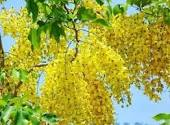Which is the most colorful and nostalgic
moment everyone in gramam loves to remember?
Surely it is the time of pooram and vishu, the memories of which will
take you off to your childhood days. The nature will be in full bloom - the
kani konna will be in glittering gold and the chembakams will be fully opened.
The distant noise of crackers will tell you of the impending vishu. The
vacations are on and for two months we are not expected to attend the boring
classes. Everyone will find out ways to
collect maximum possible money for purchasing crackers. Money for crackers form
elders is unthinkable and so cashew nuts which are in plenty proved to be the
best option for money.
Poorotsavam in Malabar has an
entirely different connotation. Elsewhere pooram is synonymous with thrissur
pooram. Here Pooram is a fertility festival.
All the temples with mother deities
celebrate this festival of the spring. In all homes young girls nearing puberty
will invocate kama, the god of love with gaiety. Pooram starts from karthika to
pooram in the month of meenam. On these days young girls make an idol of kama
in flowers in their kottilakam with awe and respect, give water and fire to it
periodically under the supervision of elders. On the last day they bid farewell
to Kaman. They earnestly request him to
visit them early next yearsinging
nerathe kalathe varane kama.
There will be a feast with poorakanhi
and poora ada.
In kavus, the
ritual is followed by drum beats and the deity is immersed in the holy pond on
the last day. There will be a poorakkali and maruthukali in all the kavus. In ashtamachal Bhagavathi temple in theru the
ritual is very symbolic. All the village folk assemble before the sanctum sanctorum
and the men folk perform a poorakkali with a beautiful song which runs like
this
Poopparikkan poyakanni
Pookkandu, poomaram kandu
avidavide thamasichu
Then they proceed to madathumpadi temple for the holy
ablutions with the four deities on decorated wooden horses. After the team return
in the evening, there is keleepathram , ayyakkapodi and thidambu nritham. On
the last day there is saliya porattu which is a sarcastic criticism of society
pronounced in a somewhat vulgar language. The entire ritual can be conceived as
a fertility cult resembling kodungallur bharani.
(See SALIYA PORATTU)




Hi sir it is so much helpful. Could you pls provide much details on this
ReplyDelete